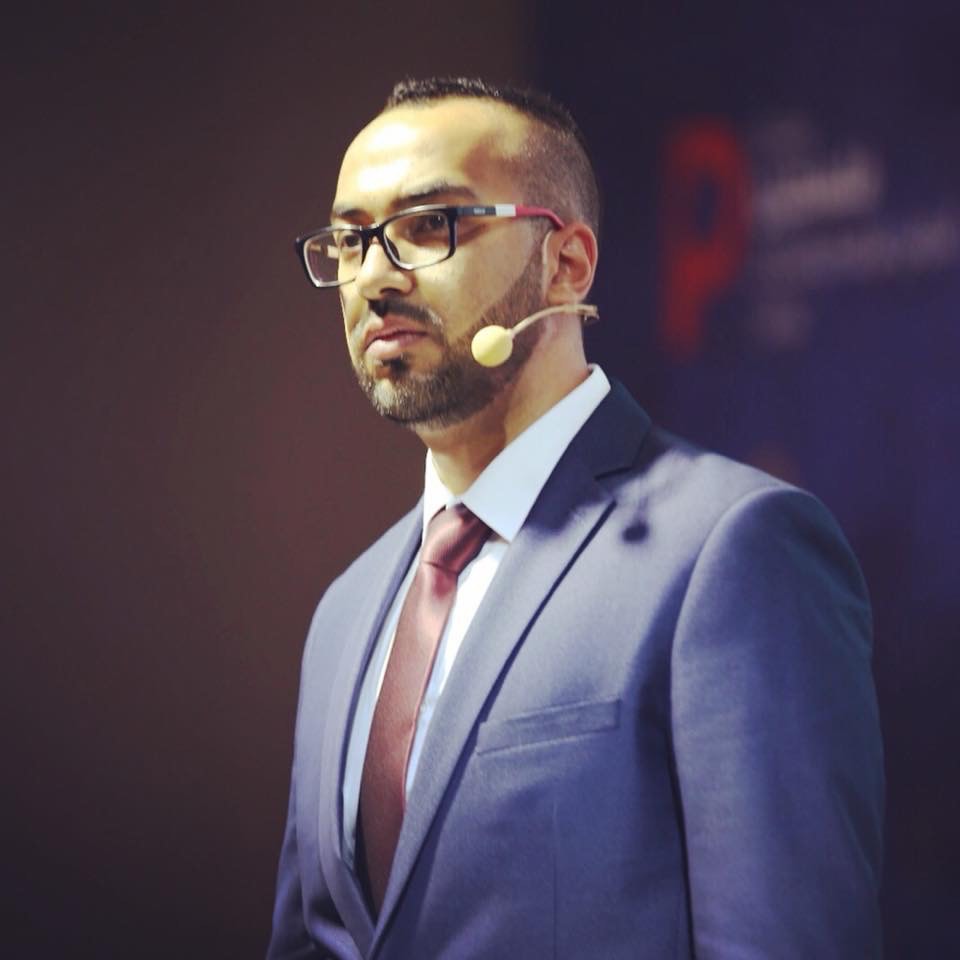كثيرا ما عملت قوة الاستعمار على طمس ثقافة وحضارة ولغة المستعمر، وسلب الهوية الحضارية والثقافية، وكثيرا ما كانت القوى المستعمِرة تستخدم القوة للسيطرة على أهم الموارد الملموسة للشعوب المقهورة.
في عصر الرقمنة اختلفت المعايير، وأصبحت السيطرة على الفضاء والوسيط هي أساس اللعبة، وتحديدًا بعدما تطورت أدوات الاتصال واتضحت قدرة هذه الأدوات على خلق وفرض واقع جديد كما حدث في الثورات العربية عام 2010.
عملت إسرائيل ومنذ عام 2016 بالتزامن مع اشتداد وتيرة عمليات الطعن في فلسطين على فرض سيطرتها على أهم الموارد المعاصرة في صناعة الفعل، وهي منصات التواصل الاجتماعي. في تلك الفترة استطاعت الحكومة الإسرائيلية عقد العديد من الاجتماعات مع إدارة منصة فيسبوك لأنها الأكثر استخدامًا في فلسطين والمنطقة. لقد ضغطت بقوة ليتم تقييد الحسابات والصفحات الفلسطينية التي تتفاعل مع أخبار عمليات الطعن، تحت ذريعة "التحريض" حيث وجدت أجهزة الأمن الإسرائيلية بفيسبوك الشماعة المناسبة لتعليق خيبتها في السيطرة على الأوضاع الميدانية المتصاعدة حينها. كما أنها اعتقلت عشرات الفلسطينيين، وقتها، بمبرر التحريض عبر فيسبوك، وتزامن ذلك مع إغلاقه لقرابة 200 حساب وصفحة لمستخدمين فلسطينيين، واجهوا ذلك بحملة لمقاطعة فيسبوك شارك فيها الملايين من حول العالم، مما دفعه إلى إعادة تفعيل جزء كبير من الصفحات والحسابات التي أغلقت.
لا يمكن حقيقة دحض أو تأكيد الزعم الإسرائيلي، وهو صعب القياس في مجتمع يقبع تحت الاحتلال، هل كانت دوافع منفذي العمليات تتأثر بحالة الإشادة والالتفاف الشعبي التي ظهرت عبر منصات التواصل الاجتماعي أم لا، كما لا يمكننا هنا تناول هذا الموقف دون التطرق لوجهة نظر عامل الاتصال للكندي مارشال ماكلوهان الذي قال في نظريته الشهيرة "الوسيط هو الرسالة"، ومن هنا بدأت معركة جديدة بين الفلسطينيين والإسرائيليين للاستفادة من هذا الوسيط الذي اسمه فيسبوك، فمن ملك الوسيط ملك الرسالة، ومن ملك الرسالة ملك المعنى، ومن ملك المعنى استمال آراء الناس.
لم تتوقف المعركة، من عام 2016 وحتى اليوم أغلقت منصة فيسبوك آلاف الحسابات والصفحات للفلسطينيين، ومنعتهم من استخدام مصطلحات تنتمي لصلب قضيتهم، مثل كلمة شهيد، وأسماء الفصائل الفلسطينية المختلفة، وأسماء العديد من القيادات الفلسطينية السياسية والعسكرية، الأحياء منهم والأموات، ووصل الأمر به أن منع الفلسطينيين من الإشادة بأبنائهم أو تهنئتهم بأعياد ميلادهم إن تصادف أن اسم الطفل يطابق اسم قيادي أو شهيد، كما حدث عدة مرات مع من يحملون اسم قسام. فقد تم توثيق العديد من الحالات لإزالة صور أطفال عن صفحات ذويهم لأنهم يحملون هذا الاسم.
بلغ حينها مستخدمو الإنترنت في الضفة الغربية وشرقي القدس ما يقارب 1.7 مليون مستخدم، الرقم الذي يمثل ما نسبته 58% من السكان، وغالبية مستخدمي الإنترنت يستخدمون موقع التواصل الاجتماعي فيسبوك بواقع 1.2 مليون مستخدم، وكان جل المستخدمين يتفاعلون مع أحداث هذه الموجة من العمليات.
في الوقت الذي كانت فيه إسرائيل وبأعلى مستوياتها السياسية تحرض على قتل العرب والفلسطينيين، لم تعر فيسبوك ذلك أهمية كبيرة، فوزيرة القضاء السابقة إيليت شاكيد صرحت بشكل واضح ومباشر بخطابات تحمل دعوات تحريضية على قتل الفلسطينيين، وفي كل دورة لانتخابات الكنيست كان التحريض على العرب والفلسطينيين مادة انتخابية رابحة بالنسبة للمرشحين، ورصدت الأبحاث منشورًا واحدًا على الأقل كل دقيقة من قبل المستخدمين الإسرائيليين ضد العرب.
بعد 5 سنوات من بداية المعركة وعديد من جولات التقييد والاحتجاجات بالحملات الرقمية تارة والبيانات والمراسلات تارة أخرى جاءت مواجهة مايو/أيار 2021 لتعيد تصعيد المعركة الرقمية بين الفلسطينيين وإسرائيل وساحة النزال كانت مجددًا فيسبوك والعالم الرقمي ككل.
تعاطف عدد كبير من مشاهير التواصل الاجتماعي مع الفلسطينيين، ونشروا عن الجرائم الإسرائيلية بحقهم مما لاقى رواجًا كبيرًا صنفه مختصون على أنه نجاح مميز للرواية الفلسطينية في الساحة الرقمية، وقوبل ذلك بهجمة كبيرة على المحتوى الفلسطيني قاربت 700 انتهاك من قبل منصات التواصل الاجتماعي المختلفة خلال فترة قصيرة.
وفي هذه الحرب تستخدم إسرائيل أكثر من وسيلة، فبالإضافة للمستوى الرسمي والضغوطات السياسية على فيسبوك واستخدام نفوذها في أمريكا، هناك وحدة متخصصة في الحكومة الإسرائيلية تعمل على متابعة منصات التواصل الاجتماعي ورصد تفاعل الفلسطينيين وإرسال بلاغات بالجملة ضد أي محتوى فلسطيني يفضح جرائم الاحتلال أو يشيد بنضالات الشعب الفلسطيني، بالإضافة للعديد من المجموعات التطوعية التي تعمل على إرسال بلاغات بشكل منظم ضد صفحات فلسطينية بعينها.
هناك تغير بنيوي طرأ في عهد الرقمنة على تركيبة المجتمع من الفرد إلى المؤسسة مرورًا بالعائلة، فالوحدة المشتركة لم تعد هي القاعدة في تعريف المجتمع هنا إنما الأداة، والتصنيف لم يعد وفقًا للإمكانيات الأولية من العيش، إنما أصبح هو صناعة الذات وتأطير الصورة وهيمنة الرواية وصولًا لسيادة الخطاب الذي تملكه الأداة أو يملكها.
لا تسعى إسرائيل من خلال فهمها لطبيعة هذا التغير أن تسيطر على الخطاب الفلسطيني الرقمي فقط، إنما يتعدى ذلك ليصل إلى تغيير المعنى وامتلاك مساحة الخطاب مما سيؤثر في آلية تفكير المستخدمين الذين يخشون على إرثهم الرقمي من الضياع، فلن يعودوا ينشرون ويكتبون ويصنعون المحتوى المرتبط بنضالات الشعب الفلسطيني.
لم يكتف الفلسطينيون باعتراف مجلس الإشراف الخاص بفيسبوك بوجود تمييز بإدارة محتواهم بالمقارنة مع المحتوى الإسرائيلي، وبيان هيومن رايتس ووتش الذي اعتبر ما يقوم به تقييدًا للحريات، ولا رسائل الموظفين الذين اعترفوا فيها بكمية التوجيه في محاربة المحتوى الفلسطيني، بل إنهم ابتكروا طريقتهم الخاصة في مواجهة سياسات فيسبوك عبر إطلاق حملة إلكترونية جديد تحت مسمى "فيسبوك يحجب القدس". وتأتي هذه الحملة تأكيدا جديدا من قبل الفلسطينيين بأنهم سيواجهون إسرائيل في ساحة النزال ذاتها مسلحين بعلم الاتصال، فمحاولات السيطرة على الوسيط من قبل إسرائيل تواجه بعمليات التكرار من قبل الفلسطينيين.
من جهتها تعبر فيسبوك عن سياساتها بربطها بالقانون الأمريكي الذي يصنف العديد من نضالات وقيادات الشعب الفلسطيني بأنها إرهابية، وهو المبرر الذي تحاجج به الشركة لإزالة المحتوى الفلسطيني وإغلاق آلاف الصفحات والحسابات التي تنشر حول القضية الفلسطينية، بما فيها صفحات المؤسسات الإعلامية وحسابات الصحفيين الشخصية. ذلك أن أكثر من 30% من الانتهاكات الرقمية ضد المحتوى الفلسطيني مورست ضد صحفيين ومؤسسات إعلامية خلال 2021، الأمر الذي يشكل تحديًا كبيرًا لحرية العمل الصحفي والإعلامي المعاصر الذي يتخذ من منصات التواصل الاجتماعي وتحديدًا فيسبوك وسيلة نشر تربطه بشريحة كبيرة من الجمهور الذي أصبح يتابع الأحداث والأخبار عبر هذه المنصات. وحتى كبرى المؤسسات الإعلامية أصبحت تعتمد في رفع حجم مشاهداتها على هذه المنصات، لذلك يوجه الفلسطينيون والمؤسسات الحقوقية المعنية بحرية التعبير عمومًا وعبر فضاء الإنترنت هذا السؤال لفيسبوك وغيرها من منصات التواصل الاجتماعي: كيف لمنصة رقمية بهذا الحجم والأهمية اليوم ألا تتوفر على معايير أكثر موضوعية واستقلالية للتعامل مع القضايا الحساسة مثل القضية الفلسطينية؟
المصادر:
- Sada.Social
- https://web.mit.edu/allanmc/www/mcluhan.mediummessage.pdf
- https://www.hrw.org/ar
- https://www.alaraby.co.uk/entertainment_media/%D9%85%D9%88%D8%B8%D9%81%D9%88-%22%D9%81%D9%8A%D8%B3%D8%A8%D9%88%D9%83%22-%D9%8A%D8%AA%D9%87%D9%85%D9%88%D9%86%D9%87%D8%A7-%D8%A8%D8%A7%D9%84%D8%AA%D8%AD%D9%8A%D8%B2-%D8%B6%D8%AF-%D8%A7%D9%84%D8%B9%D8%B1%D8%A8-%D9%88%D8%A7%D9%84%D9%85%D8%B3%D9%84%D9%85%D9%8A%D9%86
- https://www.washingtonpost.com/technology/2021/05/28/facebook-palestinian-censorship/


















![Palestinian journalists attempt to connect to the internet using their phones in Rafah on the southern Gaza Strip. [Said Khatib/AFP]](/sites/default/files/ajr/2025/34962UB-highres-1705225575%20Large.jpeg)





















